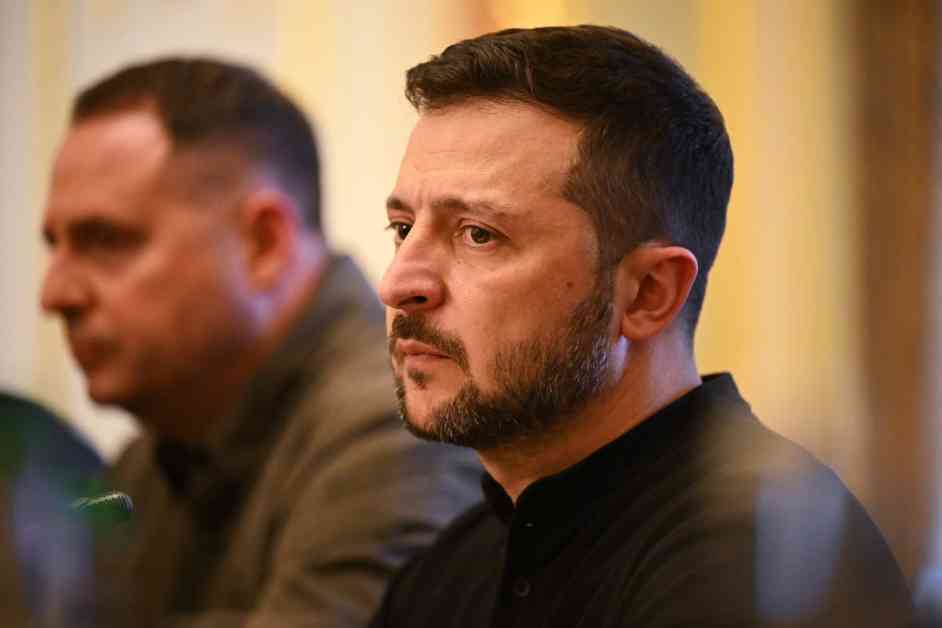Zelensky Seeks Extradition of Political Opponent in Ukraine Church Dispute
As tensions continue to rise in Ukraine over a controversial law targeting the Ukrainian Orthodox Church, President Volodymyr Zelensky is seeking the extradition of a political opponent who has sought refuge in London. Artem Dmytruk, a former member of Zelensky’s party, has been accused of “hooliganism” stemming from an incident in 2020 where he attempted to force his way into a political meeting. Dmytruk, who is also a deacon in the Ukrainian Orthodox Church, claims that he was forced to flee Ukraine due to political persecution and is now fighting the extradition request in court.
Opposition to Church Closure
Artem Dmytruk’s opposition to a law attempting to close down the Ukrainian Orthodox Church has put him at odds with the Zelensky government. The controversial law, which has raised concerns about religious freedom, has led to accusations that the UOC is connected to Russian interests. Dmytruk, who represents a district in Odessa with a large Orthodox population, believes that the government’s efforts to shut down the church are unjust and have negatively impacted his constituents.
In an interview with The Independent, Dmytruk stated, “Right now there is a political persecution going on against me and my family, against myself for my political views and my support for the UOC.” He emphasized that his disagreement with President Zelensky is based on policy differences rather than personal animosity. Despite the challenges he faces, Dmytruk remains committed to defending the UOC and its members who are serving on the front lines of the conflict in Ukraine.
Legal Battle in London
Artem Dmytruk’s dramatic escape from Ukraine to seek refuge in London has set the stage for a legal battle in the UK. The extradition request from the Zelensky government is based on criminal charges related to the 2020 incident, but Dmytruk argues that he is being targeted for his political beliefs and support for the Ukrainian Orthodox Church. With the support of the UK government and his legal team, Dmytruk is prepared to make his case in Westminster Magistrates Court.
Despite the challenges he faces, Dmytruk remains steadfast in his commitment to defending the UOC and its members who are caught in the crossfire of political and religious tensions. He believes that the church plays a vital role in providing spiritual and humanitarian support to those affected by the conflict in Ukraine, and he is determined to stand up for their rights in the face of adversity.
As the legal battle unfolds in London, the outcome will have far-reaching implications for the ongoing dispute over the Ukrainian Orthodox Church and the broader political landscape in Ukraine. President Zelensky’s efforts to crack down on dissent and opposition to his policies are being closely watched by international observers who are concerned about the erosion of democratic norms and religious freedoms in the country.
In conclusion, Artem Dmytruk’s extradition case highlights the complex interplay between politics, religion, and human rights in Ukraine. As he fights to defend his beliefs and protect the rights of the UOC, he is also challenging the Zelensky government’s authority and commitment to upholding democratic principles. The outcome of this legal battle will not only impact Dmytruk’s future but also the broader struggle for freedom and justice in Ukraine.












